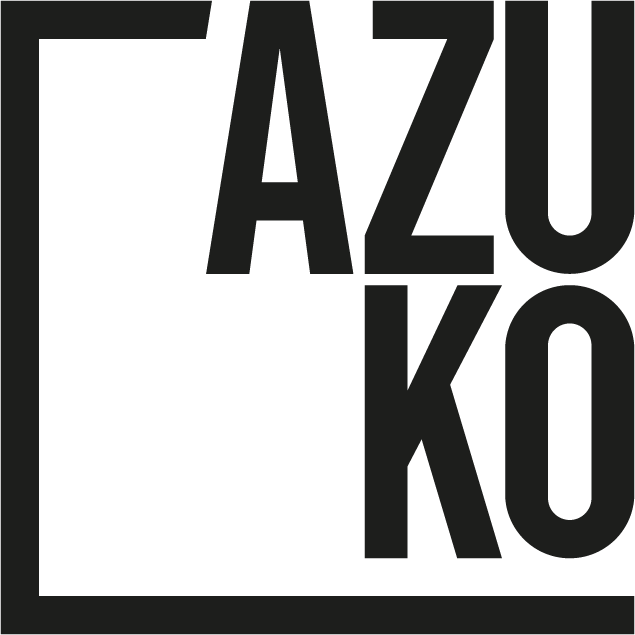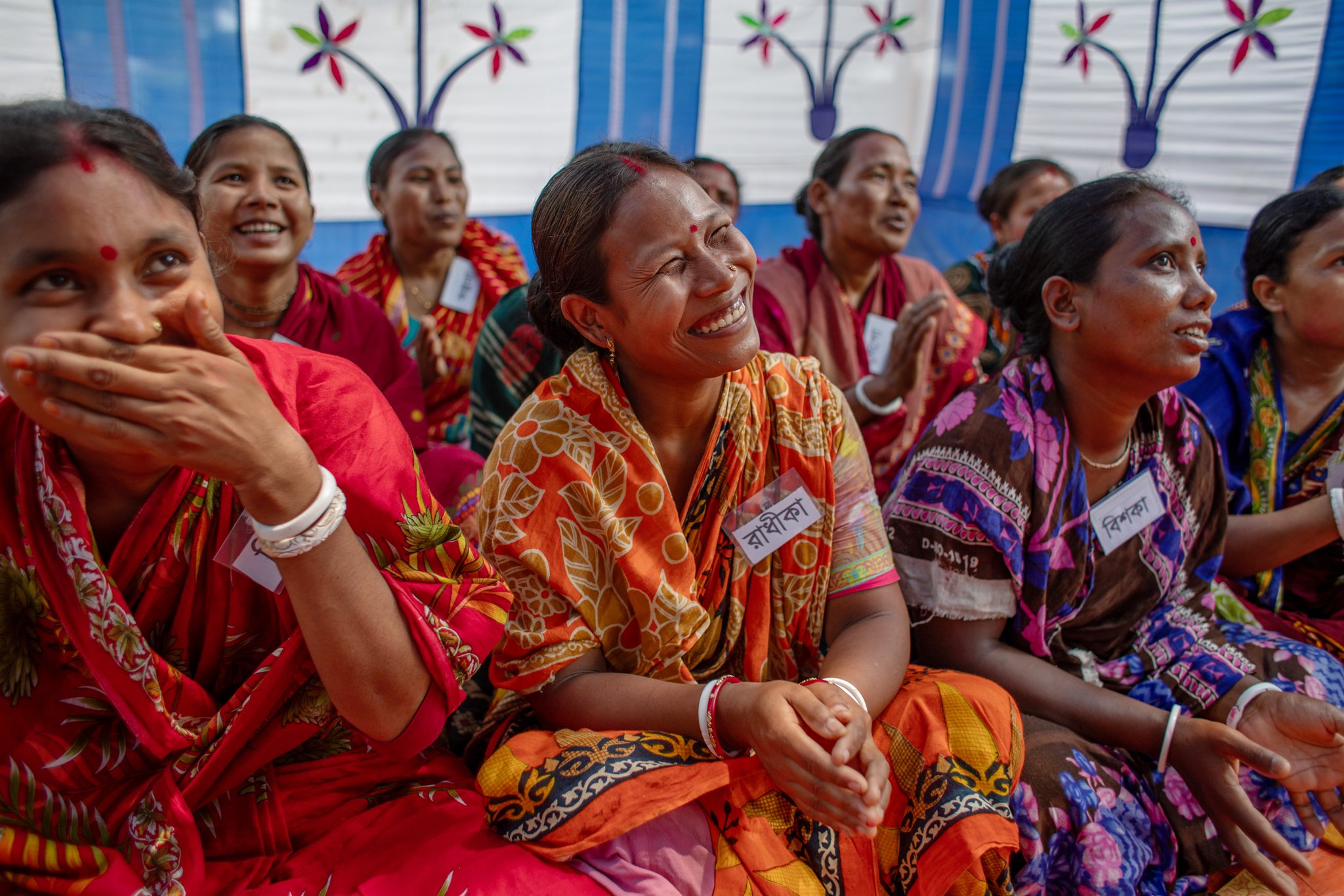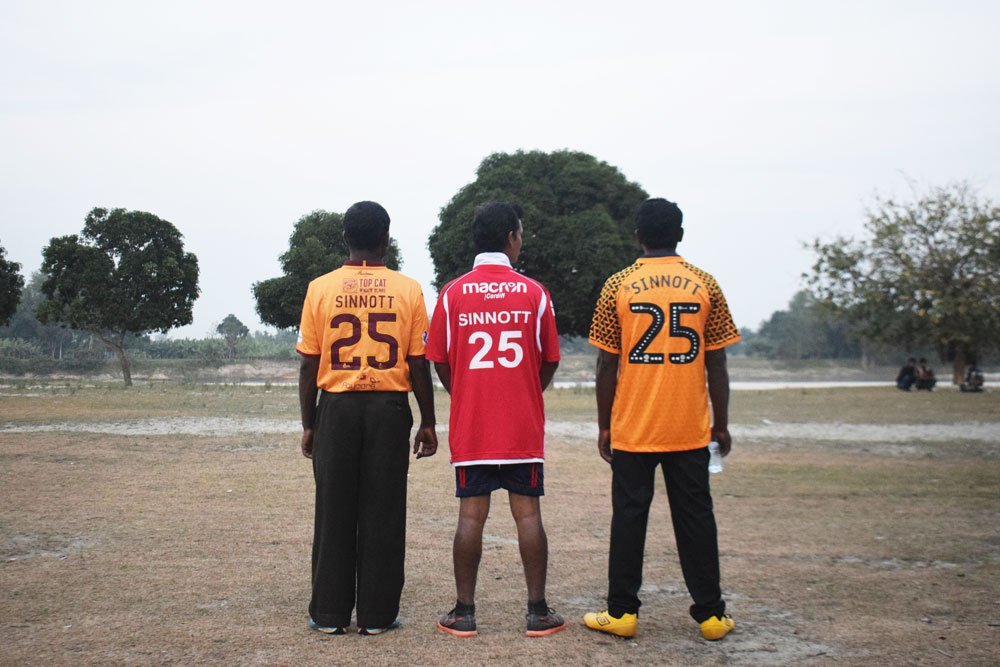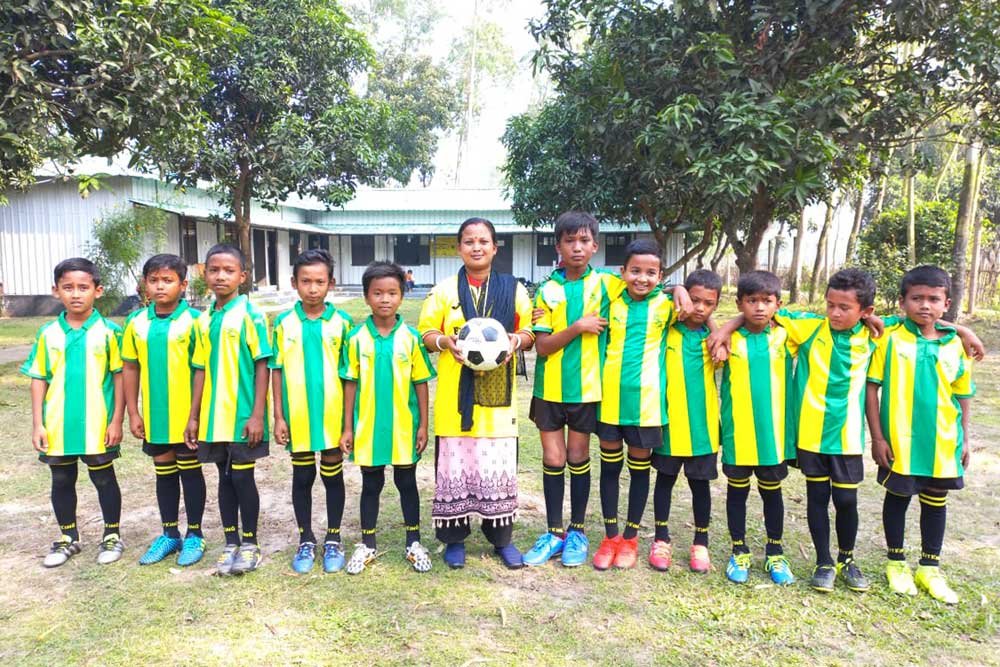Around the world, football is known for bringing communities together and in Bangladesh it’s no different. We’ve been working with KitAid and Charity Boots to distribute kit and clothes across Sundarban Union. With help from CareTech Foundation, they were transported 4,798 miles from the UK to Bangladesh.
Included in the shipment were new items, such as end of line kits from Puma, high-quality recycled items from football clubs across the UK and a range of clothes for children and adults. Most of these would have been thrown away, discarded to landfill at the end of a playing season because they’ve been outgrown, are not the latest trend or due to over-production. Football shirts displaying the name ‘Sinnott’ were also included. These were specially made by football clubs around the world in tribute to professional football player Jordan Sinnott, who was tragically murdered in 2020. Once the parcels reached the village, they were distributed to two local teams, Bandhu Sports and Lal Sobuj Tarun Jubo Songho, JAAGO primary school and residents across Sundarban.
We have worked in the region for almost ten years, aiming to improve living conditions. The last two years have been incredibly challenging for communities here with national lockdowns resulting in extreme food shortages, violence between police and communities, and a serious impact on mental health.
Due to COVID-19 local sports teams have been unable to play. However, with restrictions easing and the new kits on the way, we organised a friendly football match. Both Bandhu Sports and Lal Sobuj Tarun Jubo Songho are extremely passionate about football. They train 3-4 times a week on a simple grass pitch and play in competitions against neighbouring communities. Before the donation, they played barefoot and without a team strip.
“It’s very exciting for us, we have everything now. We’ve never played with boots before.”
On 3 December the local community came out to support. There was a band, food stalls, medals and a trophy for the winning team, Bandhu Sports, who scored two spectacular goals. The football match was not only an opportunity for the teams to try out their new kit, but it also brought the community back together.
Kit was also provided to JAAGO, a nonprofit primary school which provides education for disadvantaged children.
“It’s a great gift for our school and much needed. It will encourage students to come to school and play. We will use the kit to show we are a proper team. Thank you so much.”
The students were incredibly excited to receive their new strips and immediately put them to good use during playtime. The remaining clothing was distributed to those in greatest need across the Union with individuals nominated to receive support by the community.
““This has been a very difficult time, no money, many people have no job. We’re hoping everything is getting better… Normally people in the city have these types of clothes and shoes. I feel proud to wear it.” ”
It’s more than just a shirt – it builds a sense of pride and self-worth. We’re so pleased to make it happen.
Author: C. Taylor















